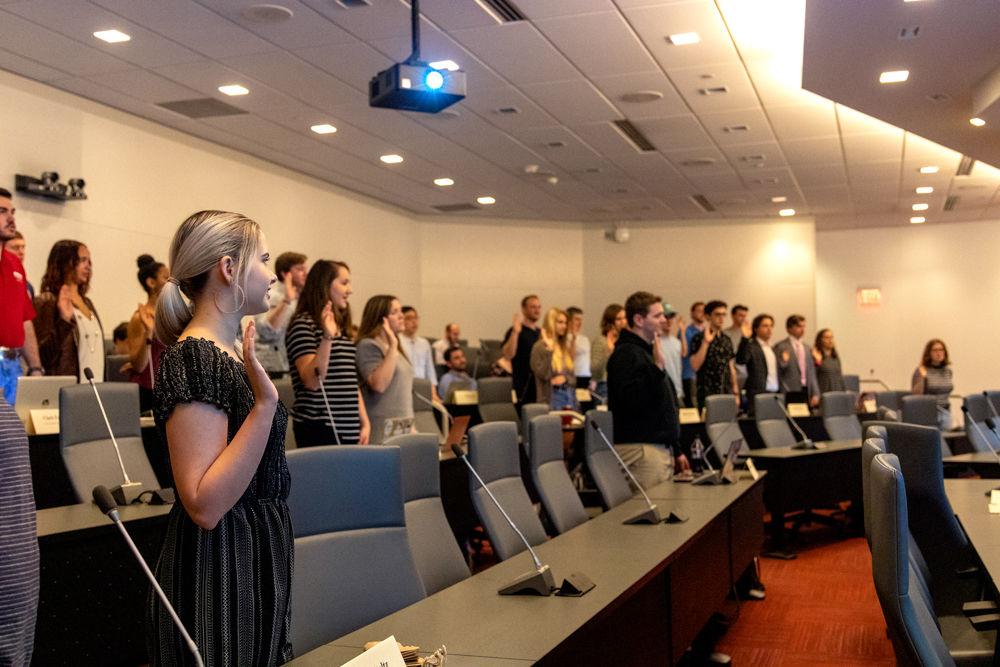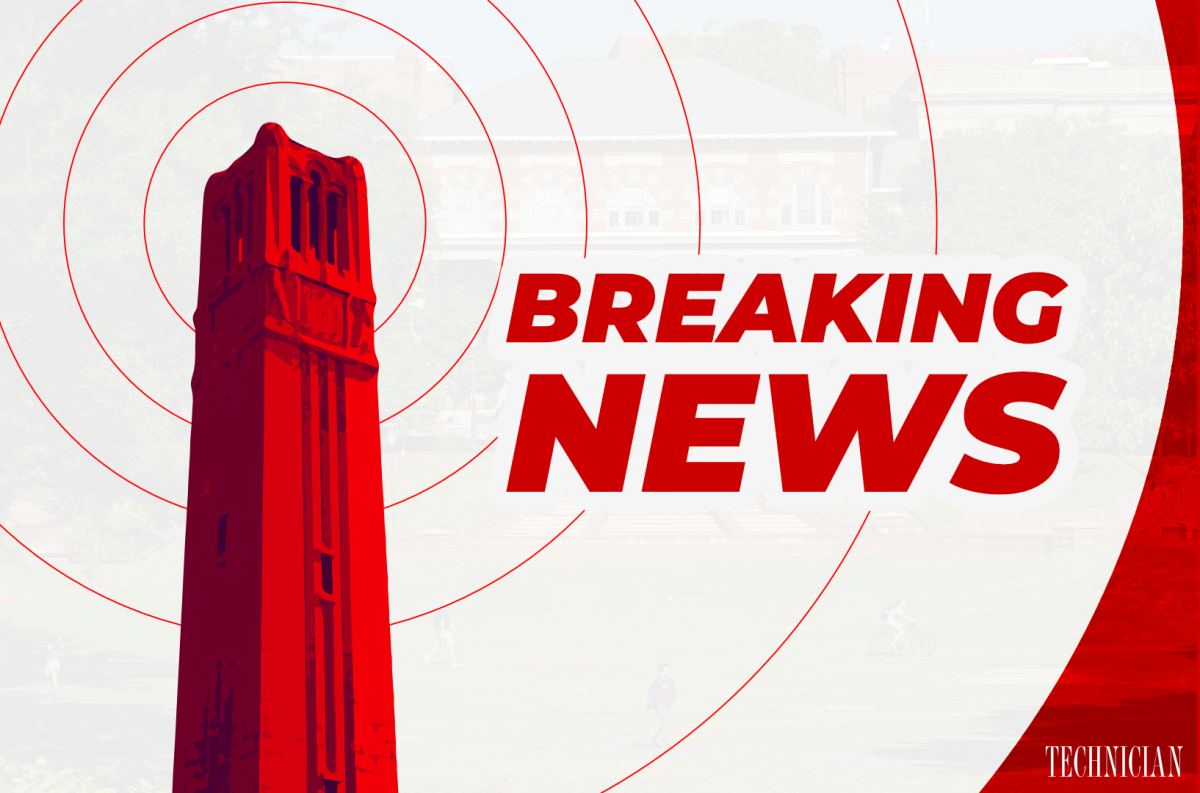NC State’s Student Senate met for a relatively short meeting Wednesday, Sept. 14 to discuss fall elections, take action on financial issues faced by graduate students and approve fall funding for student organizations.
In a report, Student Body President Emma Carter, a fourth-year in sociology and international studies, detailed several points of interest from the recent Board of Trustees meeting that occurred on Sept. 12 and 13.
According to an email from Carter, three buildings on Ligon Street will be demolished with the intent of updating them: the Small Animal Research Building, the Modular Dinoflagellate Facility and the Aquatic Research Fish Lab.
Board of Elections Chair Sam Saunders, a fifth-year studying anthropology and polymer and color chemistry, outlined two reports on the status of fall elections, noting there are currently 42 candidates running for Student Senate.
Max Hagaman, a second-year studying communication and agricultural business management, was appointed to the position of senate parliamentarian by Student Senate President Mitchell Moravec, a second-year graduate student in public administration.
R 26 – Graduate Education Affordability Act – Unanimously Passed
This resolution is aimed squarely at bringing attention to the costs of graduate programs. Supporters were quick to point out that UNC-Chapel Hill has recently begun covering graduate student fees. As it has passed, the resolution is also to be distributed to members of the University Council, an advisory body to NC State’s leadership.
R 27 – Graduate Student Summer Expenses Act – Unanimously Passed
James Withrow, a Ph.D. student in biology and entomology, introduced the resolution and argued for paying certain costs graduate students experience over the summer.
“If you’re here in the summer but taking classes, then you’re already covered for the gym and health center,” Withrow said. “But since most grad students are here all summer working as part of their grad program, but not actually taking classes, they then have to pay those fees to access those resources.”
The fees are not unique to graduate students, but graduate students are often required by their programs to stay over the summer, said Lexie Malico, a Ph.D. student in chemistry and vice president of the Graduate Student Association.
AB 33 – Fall Break 2019 Appropriations Act – Unanimously Passed
The appropriations cycle for fall semester has concluded, and a total of $93,116 has been allocated to 184 student organizations, a record number, according to Paul Cray, a third-year Ph.D. student in comparative biomedical sciences and appropriations committee chair.
This is the first of two appropriations cycles for this school year. The second occurs at the beginning of the spring semester.
SR 44 – The Absence Total Alteration Act – Unanimously Passed
This revises the absence policy for senators. As it stands currently, the Student Body Statutes state that senators have a certain number of absences before action may be taken against them, sometimes resulting in expulsion from office.
This would allow opportunities for senators to make up absences by going to certain events approved by senior members of the Senate.











